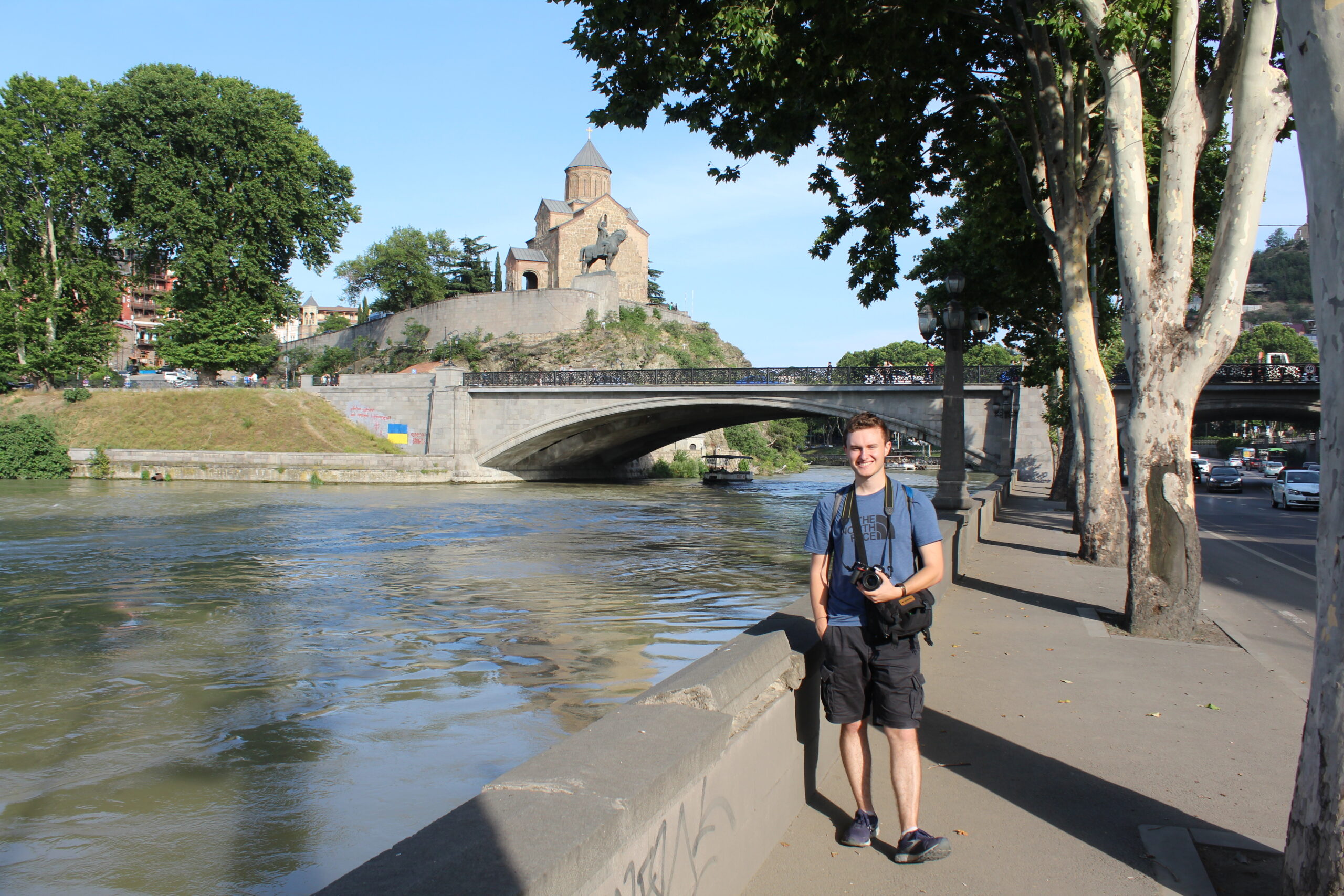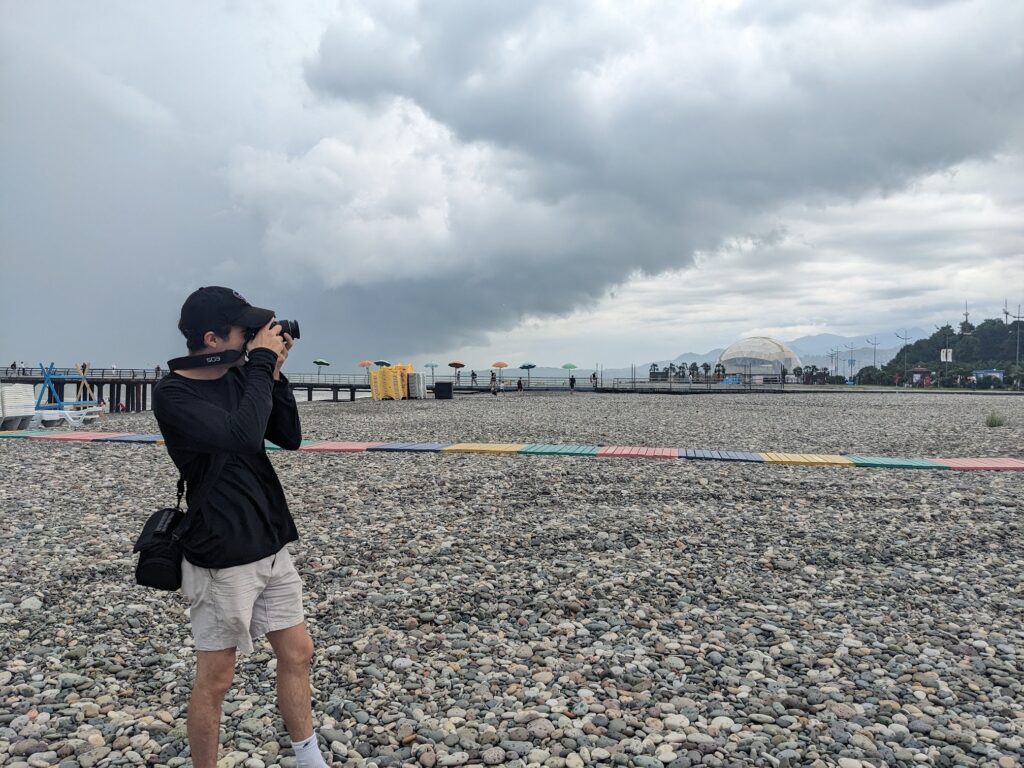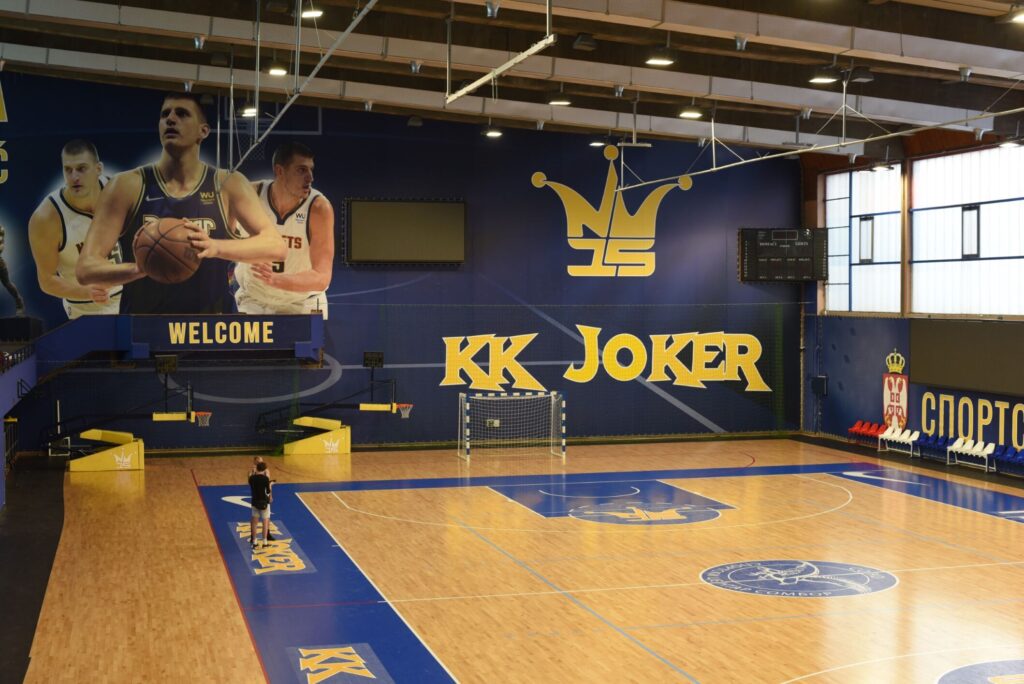
Colorado College journalism student Michael Braithwaite wasn’t sure what to think when a fellow student and friend, Zeke Lloyd, pitched the idea: use the summer between their junior and senior years to report on the war in Ukraine.
“It was like, ‘That's halfway around the world from here. Neither of us have any experience in that region whatsoever,’” Braithwaite said.
In fact, outside of classwork, their reporting experience had been mostly limited to the CC campus and the weekly student newspaper, “The Catalyst.”
“In some ways it was almost like a test, right?” Braithwaite said. “We both feel like we want to do this at least in some form post-grad. Are we actually good journalists? Are we actually good reporters?”
Through a cobbling together of grants from the college, the pair was able to start planning. Those grants required a detailed itinerary, where they were going to stay and who they would be speaking with.
“Before we even left for the trip, we reached out to, oh my gosh, it must've been at least 50 [or] a hundred different people,” Braithwaite said. “People who were in charge of non-governmental organizations throughout the region as well as academic experts, just so we could set up structured interviews ahead of time.”
They opted against risking the danger of entering Ukraine proper and instead chose to examine the secondary impacts on surrounding nations.
“A lot of people are focused right now on the front lines and what's going on,” Lloyd said. “That's really important for us in the United States, for us all around the world to know what's going on in the front lines. But, there is such an enormous impact on…the whole region. We wanted to highlight that story.”
The stories — each of which Lloyd and Braithwaite wrote together and published in the Colorado Springs Gazette — ranged from the enormous influx of people streaming into Slovakian refugee centers to Russians fleeing south into Georgia to avoid being conscripted into the war effort.
Slovakia
The office of the U.N. High Commissioner for Refugees reports that nearly 125,000 Ukrainian refugees have applied for asylum or some other form of protected status in Slovakia since the start of the war. About 107,000 of them are currently located in Slovakia proper.
And that’s just those who want to stay in the country. Last October, the Brookings Institution estimated 690,000 Ukrainians had passed through Slovakia on their way to other destinations.
“You're seeing really, really human moments. You're seeing really powerful acts of kindness, altruism, selflessness,” Lloyd said.
Lloyd described this mass migration as “dwarfing any event in Slovakian history.” The country’s population is slightly smaller than Colorado’s at more than 5.4 million. Refugee organizations like the Human Rights League have rallied to keep up with the needs of migrants, some helping upwards of 700 people a day at their peak.
But the strain on the populace is increasing as the war drags on.
As the two moved further east toward the border of Ukraine, they found it much more difficult to get interviews once they identified themselves as Americans. It seemed that side of the country, according to Braithwaite, held on more tightly to its Soviet past — from its architecture to its culture.
“We'd go to the grocery store and — not even doing journalism things — just going and getting food and speaking English, and that would just turn heads,” Braithwaite said. “Generally, there, people were a little bit less friendly.”
They also saw a citizenry actively paying attention to the start of the 2024 U.S. presidential election cycle.
“Generally, we don't think of elections or political movements in Slovakia, for instance, in terms of how it relates to us,” Braithwaite said. “But they are really focused on what's happening in the United States. Because, for the state of global politics, it could be a massive shift.”
Georgia
When Lloyd and Braithwait made it to Georgia, across the Black Sea from Ukraine, on Russia’s sudden border, they met the outflow of fleeing Russians in the war.
“They get sent off, basically, to be meat,” Braithwaite and Lloyd quoted one young Russian man saying. He said he fled to Georgia to avoid being picked up by his nation’s military.
“Once you get taken, you're taken. That's done. If they get you in a van, that's it. No lawyer. No nothing,” the man said.

Georgia has often had a cozier relationship with Russia than Ukraine and many other former Soviet states. Despite Georgia’s own Russian occupation, now in its 15th year, The two countries retain diplomatic relations.
“I mean, even to this day, Georgia is one of the few countries that you can travel freely to with a Russian passport,” Braithwaite said, explaining that’s how many military-aged men have managed to legally escape conscription.
The two discovered that many Russians in Georgia still support the government of Vladimir Putin, even if they themselves do not want to actively join the war effort.
Braithwaite reported Georgians are not concerned with Russian migrants, but Georgians worry their presence may stoke greater aggression from the Kremlin in the future.
Their five weeks in Europe also brought breaking news situations the two did not foresee. Notably, they reported on the Wagner Group’s failed attempt to march military forces into the heart of Moscow.
As the potential coup unfolded, they scrambled to see what they could put together. It was a serious, complicated and important turn in the conflict — and it was entirely outside of what they had planned to cover.
“Can we figure everything out in time to publish a story about this event?” Lloyd said. “It's Michael's birthday the next day and we run the most interviews we've ever done.”
A fun Mile High surprise
In the midst of war coverage, the pair were able to make an unexpected detour into Serbia to witness welcome home events for Denver Nuggets star Nikola Jokic after his team won the 2023 NBA Championship.
It was a reprieve as well as a gift from their home across the sea.

Braithwaite recalled the feeling of satisfied exhaustion on the bus ride back to Slovakia after finishing the Jokic article.
“I was just reading over the story again and I was like, ‘Wow,’” he said. “I think that was probably the time of the trip where I really felt the most in the moment.”
“There's just no feeling like it,” Lloyd added. “The trip, really for me, hammered home how important honest media is and just how difficult that process is…realizing the amount of work you have to put in to put together a really true piece of writing.”
Now both 21 and entering their senior year, they have seven international bylines in their portfolio from countries bordering the site of Europe’s biggest conflict since World War II. And, once both graduate, they hope to get back abroad soon.
Editor’s Note: CPR and Colorado College partner to operate KRCC.









